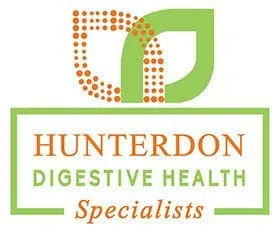Nonalcoholic fatty liver disease (or NAFLD) is a condition where excess fat is stored in your liver. This buildup is NOT caused by alcohol. NAFLD is becoming increasingly common in our society, affecting about 1/4th of our population.
Some individuals with NAFLD can develop a more aggressive form of fatty liver disease call nonalcoholic steatohepatitis (or NASH). This condition causes inflammation in the liver that can progress to fibrosis (abnormally large amounts of scarring in the liver), cirrhosis (hardening of the liver), liver failure, and even liver cancer.
What is the difference between NASH and NAFLD?
Non-Alcoholic Fatty Liver Disease is when you have fat in your liver but little or no inflammation or cellular damage.
NASH is a form of NAFLD where you have inflammation of the liver and cell damage, in addition to fat in the liver. This can lead to fibrosis, cirrhosis, liver failure and liver cancer.
What Causes NAFLD?
NAFLD and NASH are both linked to:
Obesity
High Cholesterol
High Triglycerides
Metabolic Syndrome
Diabetes and Insulin Resistance
People with fatty liver disease often have insulin resistance. This is where your body can make insulin but can’t use it well. Sugar builds up in your blood and your liver turns this excess sugar into fat and stores it.
What are the symptoms of NAFLD?
Fatty liver typically doesn’t cause any symptoms; however, signs and symptoms may include:
Fatigue
Pain or discomfort in the right upper abdomen in the area of the liver
Elevated liver functions tests
Abnormal ultrasound findings
What are the complications of fatty liver disease?
NASH can lead to fibrosis, cirrhosis, and liver cancer.
Studies suggest that people with NAFLD have a greater chance of developing heart disease. Cardiovascular disease is the most common cause of death in people with either NAFLD or NASH.
What can I do to prevent NAFLD and NASH?
Follow a healthy diet
Make small changes to your diet.
Eat more fresh fruits and vegetables, berries, leafy greens, fish, nuts, high-fiber foods, beans and legumes, good fats, avoid excess carbohydrates, limit processed sugars, saturated fats, trans fats, red meats, and salt.
Incorporate good fats into your diet. These include:
Omega-3 fatty acids found in fish, olive and canola oils, nuts, flaxseed, sunflower seeds, and almonds, and
Monounsaturated fats found in plant sources like olives, nuts, and avocados.
Steer clear of saturated fats, which can lead to more fat deposits in your liver. These include fats found in red meats, dairy products, certain baked goods, and fried foods.
Maintain a healthy weight
Lose excess fat, especially excess belly fat
Research suggests losing weight is the single best thing you can do to control or reverse fatty liver. Even a 3-5% reduction in body weight can improve your liver health.
Alcohol can cause fat to build up in your liver so limit alcohol consumption
Avoid drugs known to be toxic to the liver.
Exercise regularly: stay active
Follow medical advice and guidelines for the aggressive management of diabetes, high cholesterol, high triglycerides, and metabolic syndrome.
Treating underlying medical conditions such as diabetes, insulin resistance, high cholesterol, high triglycerides, metabolic syndrome, obesity, and underactive thyroid can all help to slow and/or reverse the disease process.
Can fat be removed from the liver?
Fortunately, fatty liver can be reversed if addressed early. Aggressive management of metabolic syndrome, diabetes, pre-diabetes, high cholesterol and obesity are key.
Gradual weight loss and good control of blood glucose levels are recommended for all patients with fatty liver. Weight loss should be gradual, as some research suggests losing weight too fast may accelerate the disease. Studies show that losing even a small amount of weight can improve liver enzyme function, and reduce liver inflammation caused by the extra fat.
If you have a history of an abnormal ultrasound or elevated liver function tests or other concerns, be sure to schedule a consultation to have your symptoms comprehensively evaluated.
